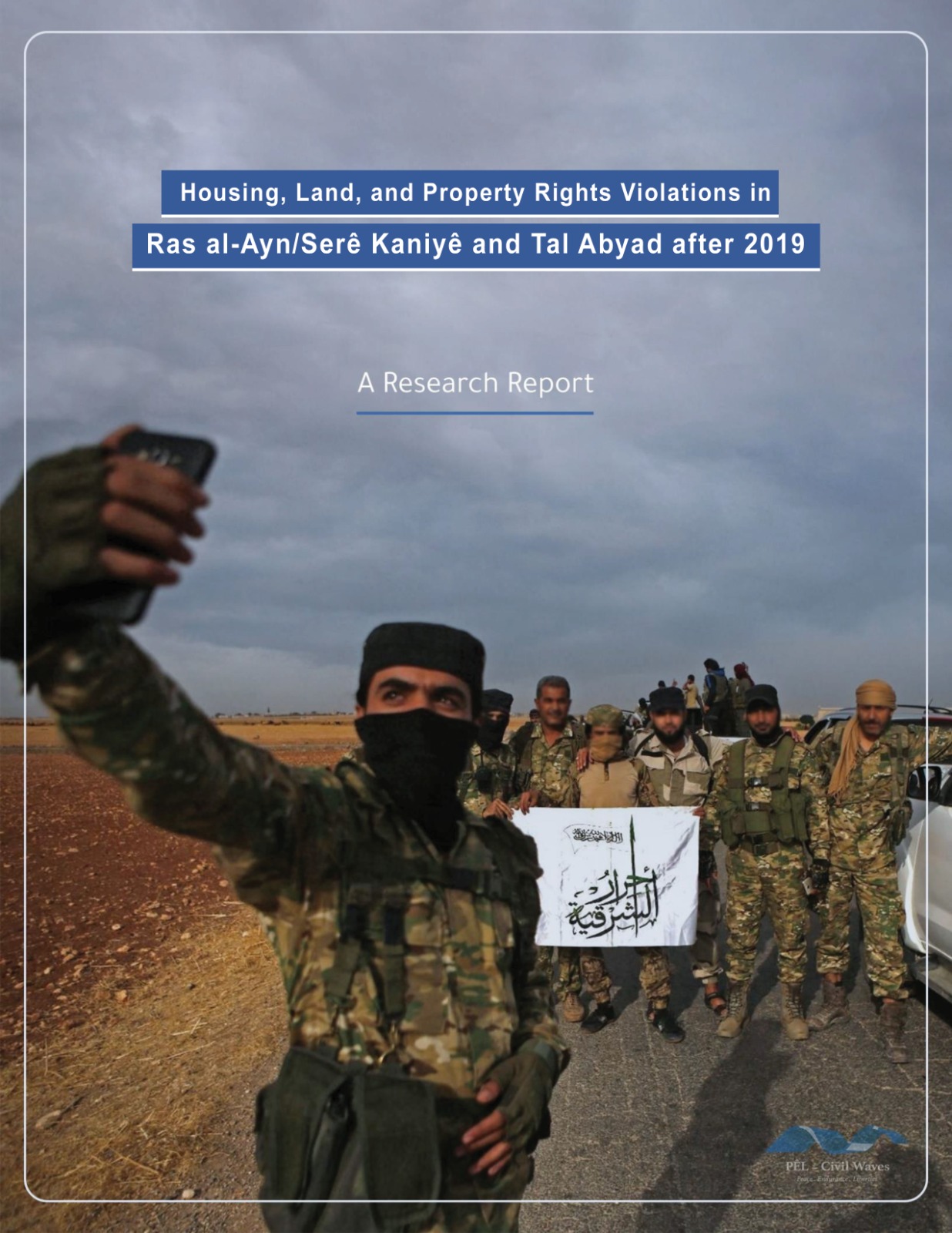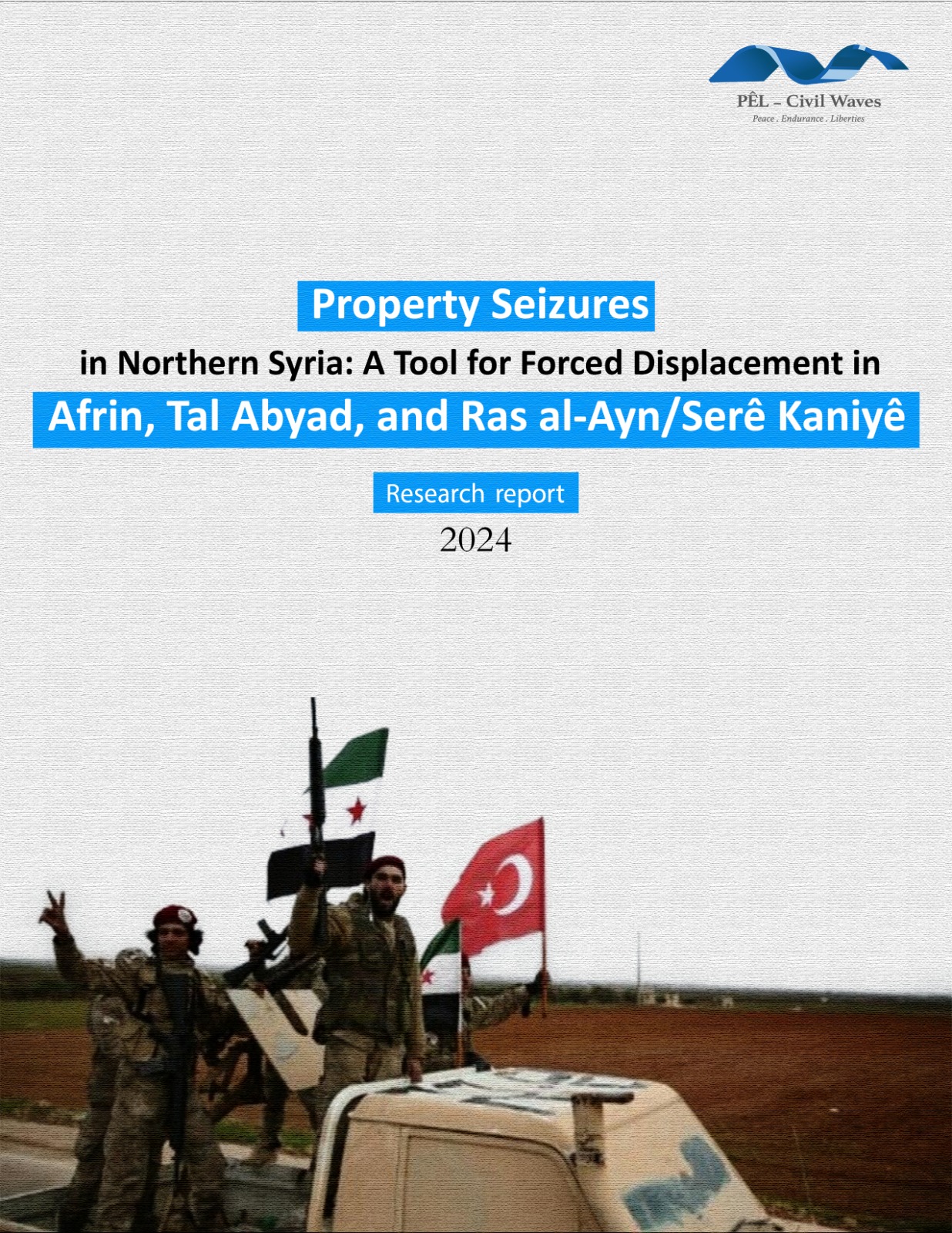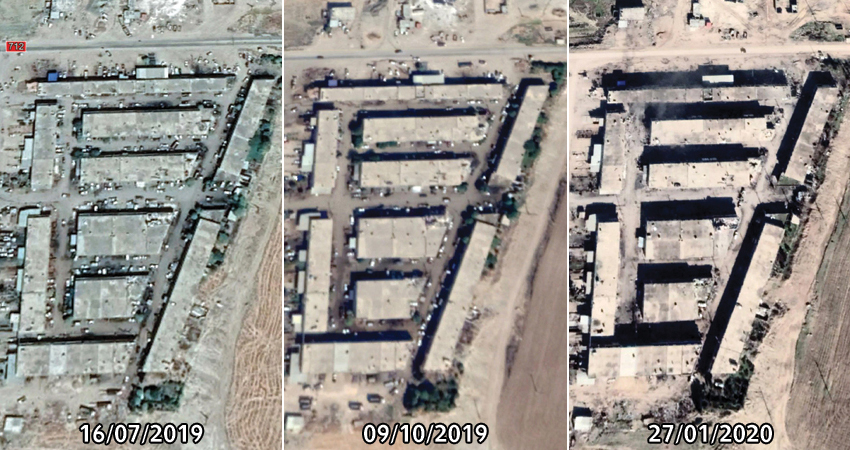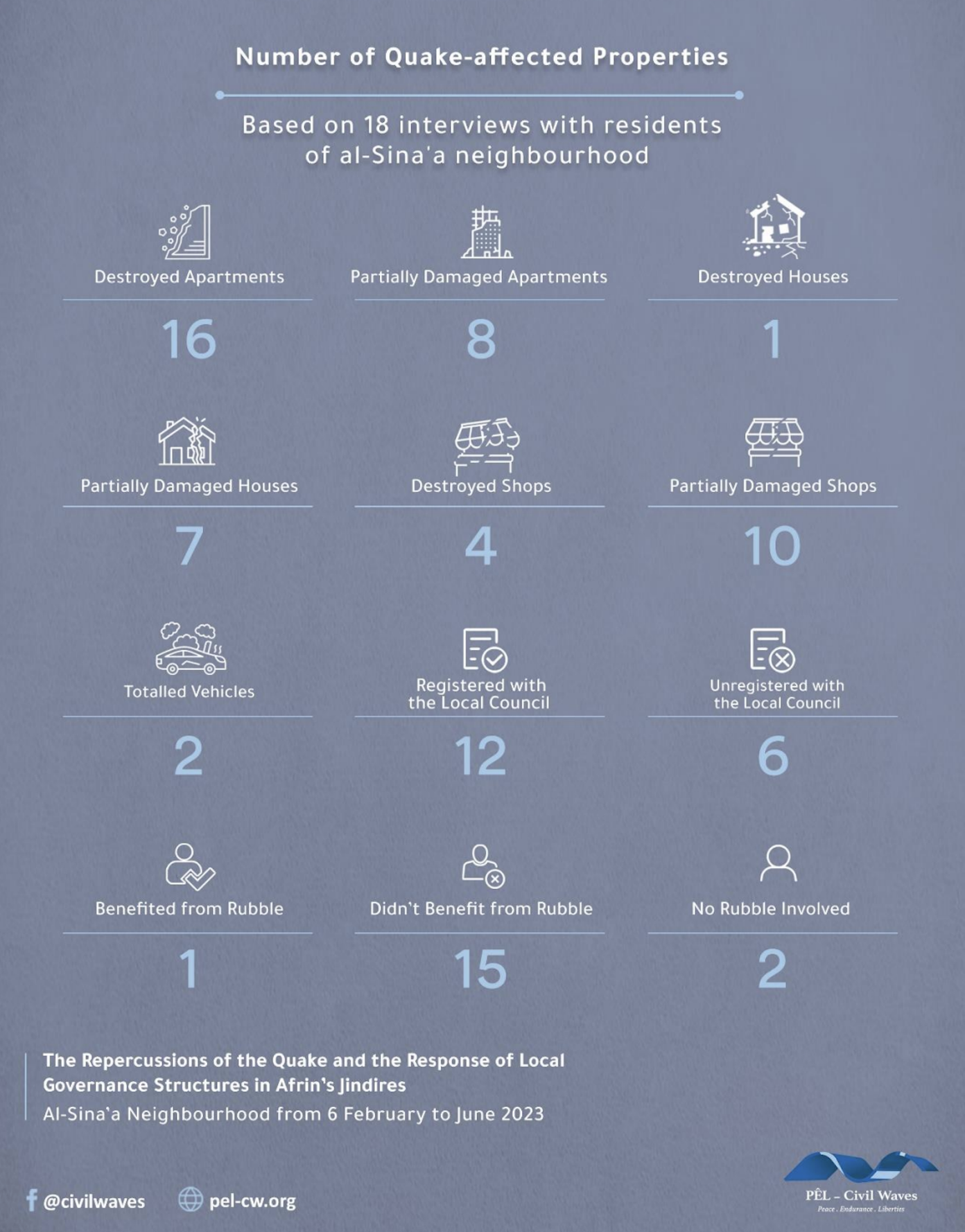On 9 October 2019, Turkish President Recep Tayyip Erdoğan announced the start of the military operation code-named “Peace Spring”. The incursion targeted and led to the Turkish military and Türkiye-backed armed groups of the Syrian National Army’s (SNA) complete control over the strip in north-east Syria, encompassing Ras al-Ayn/Serê Kaniyê and Tal Abyad.[1] Grave human rights violations accompanied the operation, and numerous others occurred over the years following active hostilities—especially breaches of the local population’s property rights. The violations are corroborated by a total of 75 in-person interviews with internally displaced persons (IDPs) from the two areas. Among the interviewees are 39 men and 36 women who now live across al-Hasakah province or in the Tel Samen IDP Camp in Raqqa.
This research report sheds light on the violations of housing, land, and property (HLP) rights perpetrated by the Turkish military and the SNA-affiliated armed groups in Ras al-Ayn/Serê Kaniyê and Tal Abyad areas, which they have predominated since the incursion. Notably, the testimonies collected for this report revealed that key patterns underpinned the abuses perpetrated against the two areas’ local communities. These were the seizure of locals’ homes and shops; housing strangers in seized homes; unlawful destruction of locals’ properties; appropriation of agricultural lands, bulldozing or cutting off the trees they contained; and transformation of appropriated properties and groves into military posts. The Turkish military did not only bear witness to these violations but also took part in committing them. Furthermore, the testimonies also unveiled patterns of violations that ran in parallel to HLP abuses, including looting seized homes’ furniture, selling, burning down, or damaging household items; and destroying title deeds and other property-related documents. Other violations transpired, including the humiliation, arrest, and torture of locals who dared to protest the seizure of their properties, and also denying locals access to their hometowns, not even to bury their dead. Notably, these patterns mirror those recorded in the Afrin region that accompanied Operation Olive Branch, which PEL–Civil Waves documented in a previous report titled “Housing, Land, and Property Rights Violations in Afrin after 2018”.
The testimonies’ analysis shows that the systematic and large-scale violations mainly aimed at not only amassing massive profits for the SNA fighters involved in looting but also forcing the locals to flee their areas and leave their homes to the armed groups, who later settled in IDP families from elsewhere in Syria in the properties they seized. This has ultimately resulted in vast demographic changes, the primary victims of which were Kurdish citizens, both men and women, who were accused of affiliation with the Autonomous Administration of North and East Syria (AANES) and the Kurdistan Workers’ Party (PKK). The armed groups used this alleged affiliation as a pretext to confiscate the properties of locals.
Witnesses interviewed for this report managed to identify the armed groups involved in 148 out of 164 property violations, leaving 16 cases unaccounted for. Additionally, information compiled and analysed by PEL-Civil Waves’ team indicates that the property violations in the report’s target area—the Peace Spring strip—were perpetrated by the SNA or the Turkish military directly. Aggregated by the number of violations committed, the groups involved were:
To read more or download the report, please visit the link:
Housing, Land, and Property Rights Violations in Ras al-Ayn-Serê Kaniyê and Tal Abyad after 2019




